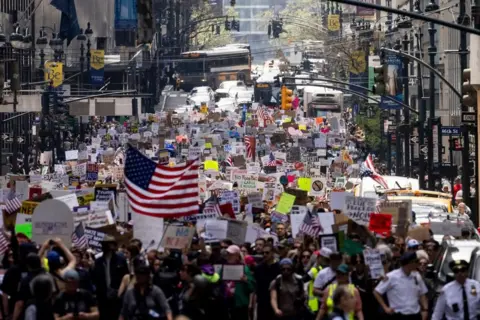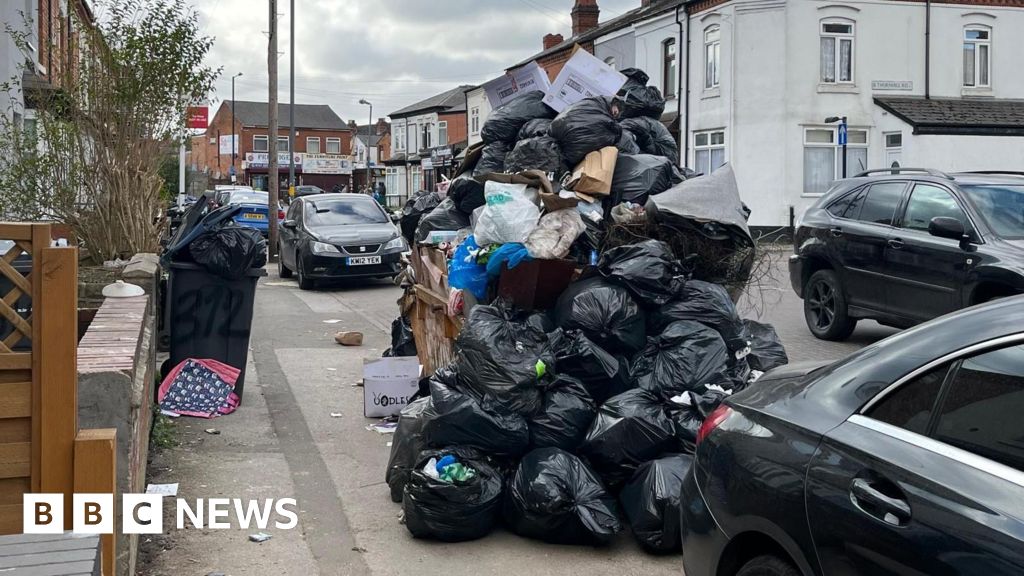US Halts Major Offshore Wind Project, Signaling Tough Stance on Renewable Energy

The United States government has made a decisive move that has significant implications for the renewable energy landscape by halting a $5 billion offshore wind project developed by Norways Equinor. This action not only represents a setback for the already beleaguered renewable power sector but also indicates an aggressive shift toward stricter oversight of clean energy initiatives under the current administration.
Interior Secretary Doug Burgum has ordered Equinor to immediately halt all construction activities on its ambitious Empire Wind project, which is designed to generate 810 megawatts of energy off the coast of New York City. The decision stems from accusations that the previous administration, led by President Biden, approved the project without conducting a sufficiently thorough analysis. This scrutiny raises questions about the regulatory processes in place for such large-scale initiatives.
The suspension of the Empire Wind project represents the latest in a series of actions taken by the Trump administration aimed at curtailing the expansion of the offshore wind sector in the United States. In January, President Trump paused all offshore wind leasing and permitting, mandating a comprehensive review of projects that had already been approved. This ongoing offensive has led other leading energy developers, including major firms like Shell and TotalEnergies, to reassess or delay their ventures within the American market.
Originally approved by the Biden administration in November 2023, the Empire Wind project had already begun construction in the previous year. It was poised to create approximately 1,000 jobs and was touted as one of the largest federally sanctioned projects in the US, intended to be the primary offshore wind development dedicated to servicing New York City. Following the abrupt halt, Equinor expressed its intention to engage with the Interior Department to address the concerns surrounding the permits they had previously secured.
Unlike many other renewable energy initiatives, the offshore wind sector in the United States heavily relies on federal government approvals for permitting. A recent report by consultancy Rystad Energy indicated that over 90 percent of the planned offshore wind projects, representing a total capacity of more than 60 gigawatts, are now facing serious risk due to the current regulatory environment.
New York Governor Kathy Hochul has publicly pledged to fight against the Trump administrations decision, stating, I will not allow this federal overreach to stand. Her administration has set an ambitious target for the state to generate at least 70 percent of its electricity from renewable sources by 2030, a goal that is increasingly difficult to achieve without the support of offshore wind projects.
The Trump administrations actions against offshore wind exacerbate existing economic challenges that the sector has faced over the past two years, including the impact of high-interest rates and inflation, which have already strained the renewable energy market.
Industry experts and clean energy advocates have voiced their concerns, warning that these aggressive moves could jeopardize the stability of the American electricity grid. This grid is currently experiencing unprecedented demand for electricity, driven by trends such as reshoring manufacturing and the race to lead in artificial intelligence technologies.
The decision to pause an already-approved project raises fears that it may set a dangerous precedent for similar projects across the energy sector, potentially sending negative signals about the United States reliability as a favorable business environment for investment.
According to the Oceantic Network, a non-profit organization dedicated to promoting offshore wind initiatives, more than $40 billion has already been invested in the US offshore wind sector. Notably, European companies back over half of the advanced offshore wind projects currently underway in America, highlighting the international interest and investment in this segment of the renewable energy market.
Doubling back to reconsider permits after projects are under construction sends a chilling signal to all energy investment, remarked Jason Grumet, CEO of American Clean Power, a prominent clean energy advocacy group. He further stated, These political reversals are detrimental to policy, whether they affect pipelines or wind farms.


















